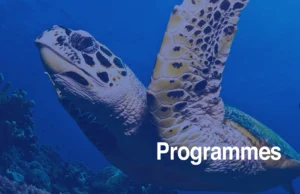Institutional Strengthening of the Biodiversity Sector in the ASEAN (ISB II) Closing Forum and Partners’ Night back-to-back with the ABBI Workshop
From Vision to Action: Celebrating 14 years of cooperation
for ASEAN Biodiversity
ABBI PLANNING WORKSHOP WELCOME REMARKS
19 March 2024 | Alabang, Philippines
To our distinguished guests,
Mr. Ky-Anh Nguyen,
Director, Sustainable Development Directorate, ASEAN Secretariat
Mr. Dominik Fortenbacher
Project Director, ISB II, GIZ Philippines
Representatives from the ASEAN Member States, partners on business and biodiversity, colleagues, good morning! Magandang umaga!
On behalf of the ACB, I am very much pleased to welcome all of you to this very important workshop. This is a historic moment where the leading green business advocates and stakeholders of the ASEAN region convene to craft the future direction of the ASEAN Business and Biodiversity Initiative (ABBI)—the first of its kind as a pivotal regional platform for sustainable and nature-positive business practices.
The abundance of biodiversity and natural assets is the engine of ASEAN economies. Most livelihoods and various commercial products and services are derived from nature such as those related to food and agriculture, medicines, energy, construction, textile, and tourism. Healthy ecosystems such as forests, mangroves, and coral reefs, shield most industries from adverse climate impacts and natural disasters. This is why there is a need for concerted efforts in the region to raise awareness of the vital links between sustainable, green business, and a healthy biodiversity.
The shared vision of the ASEAN-BAC and the ACB led to the ASEAN Business and Biodiversity Initiative (ABBI), officially launched on 2 September 2023 during the 42nd ASEAN Investment Summit in Jakarta. This is a milestone in advancing collective efforts in the region to mainstream biodiversity and nature-based solutions in the strategic priorities of the business sector. ABBI is also envisioned to serve as a platform in the ASEAN region for like-minded business and biodiversity stakeholders at the regional and global levels to collaborate and complement each other’s initiatives. Since the ABBI was launched, several key actions have been undertaken including interviews, consultations with the ASEAN Member States, and thought leaders from the Business-Biodiversity space, some of whom are here with us today.
The ACB as part of the Global Partnership for Business and Biodiversity, for instance, is participating in a global effort to take stock of ongoing efforts and experiences by private sector firms on the application of positive incentives for the conservation and sustainable use of biodiversity in their business operations. This is called the Positive Incentives Collaborative Project, which we hope we can launch at the CBD COP 16 in Cali, Colombia later this year. We would be happy to welcome any one of you who believes that you will be able to make substantial contributions to the process.
Last 7 March, the ACB partnered with Business for Nature and the Malaysia Platform for Business and Biodiversity, for a roundtable discussion on Developing NBSAPs in Southeast Asia. The activity highlighted the importance of the National Biodiversity Strategy and Action Plans (NBSAP) updating as a key opportunity for governments to engage, encourage and mobilise businesses through clear policies and roadmaps to achieve the Global Biodiversity Framework targets and goals. The Malaysia Platform for Business and Biodiversity (MPBB) shared its experience working closely with Malaysia’s Ministry of Natural Resources and Environmental Sustainability, to enhance the role of the National Business Advisory Group and for the ongoing development of the Business-Biodiversity Action Plan to become part of the updated NBSAP.
Today’s face-to-face workshop will build on the outcomes of such consultations and reviews held earlier this year that will inform the ABBI Joint Work Programme. Our interactive discussion will have a World Cafe format to give everyone the opportunity to share their insights and reflections towards crafting the vision, mission, and programmes of ABBI in the next three years—our roadmap for the region’s business and biodiversity initiatives. We hope that through our interaction today we can sharpen our analysis of the challenges and opportunities of mainstreaming biodiversity in business and in other development sectors, build a better understanding between the public and private actors in the business and biodiversity space, and identify areas for collaboration and complementation of our sectoral initiatives to create impactful synergies, which demonstrate that biodiversity-positive business is good business.
We recognise the leadership of the ASEAN-BAC last year under the Chairship of Indonesia, through KADIN, in pursuing this collaboration for greater and more meaningful participation of the private sector in biodiversity conservation. We will have a presentation on ASEAN-BAC’s legacy project called the ASEAN Alliance on Carbon Market, another area for complementation we could look into under ABBI. This will be followed by a presentation of the ASEAN Investment Framework for Haze-free Sustainable Land Management or AIF. The AIF aims to enhance multi-stakeholder partnerships and secure resources at local, national, and regional levels to promote sustainable land management and effectively address transboundary haze issues.
We very much look forward to continuing this partnership with this year’s Chair of the ASEAN-BAC, Lao-PDR, through the Lao National Chamber of Commerce and Industry, in collaboration with the ASEAN BAC Secretariat. Together with the AMS, with the support of the ASEAN Secretariat and our dialogue and development partners, we are confident that we can come up with a joint roadmap to navigate ways to encourage industries and private sector networks to mainstream nature and biodiversity into their business operations, as part of their sustainability models.
The ACB, for its part, will continue to work with the different ASEAN sectoral bodies, to help advance nature-based solutions as part of the Region’s climate action agenda, as well as strategies for a bluer and greener economy, and help AMS meet the identified targets under the Global Biodiversity Plan, and in effect, also achieving the Sustainable Development Goals.
The ABBI planning will be followed by the ASEAN Natural Capital Validation Workshop in cooperation with the E-READI Team. Understanding natural capital, and finding strategic measures on how to integrate this in different sectors and disciplines at the national and regional levels are important considerations to have, moving forward.
Finally, all the business and biodiversity-related discourse lined up for today demonstrate how we can foster ASEAN’s whole-of-community approach towards nature-positive economic growth and a more resilient region, where no one is left behind.
I trust that the collective expertise and insights in the room today will set the course of the ABBI for the next three years and more.
Thank you and I wish you all a great discussion ahead!























